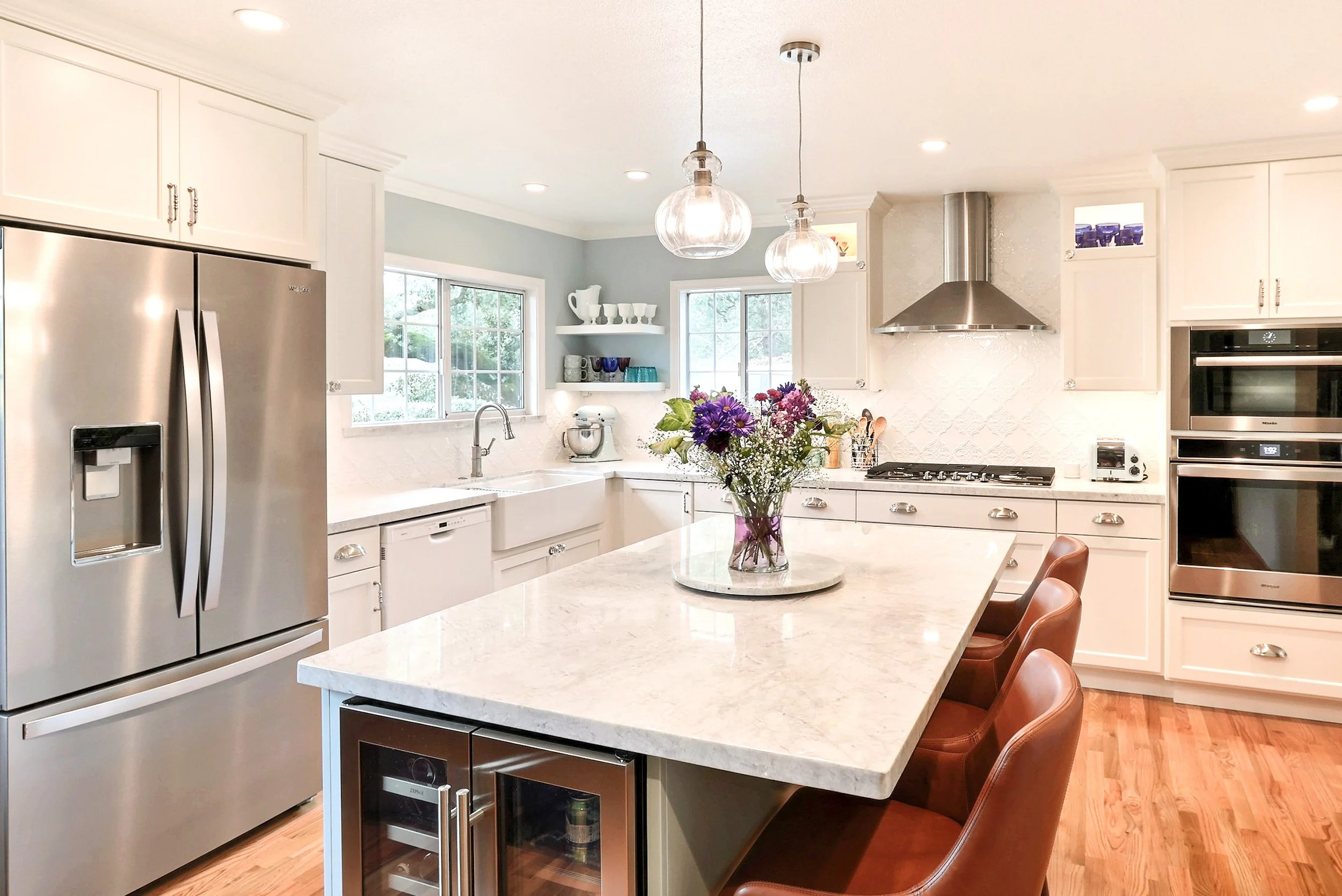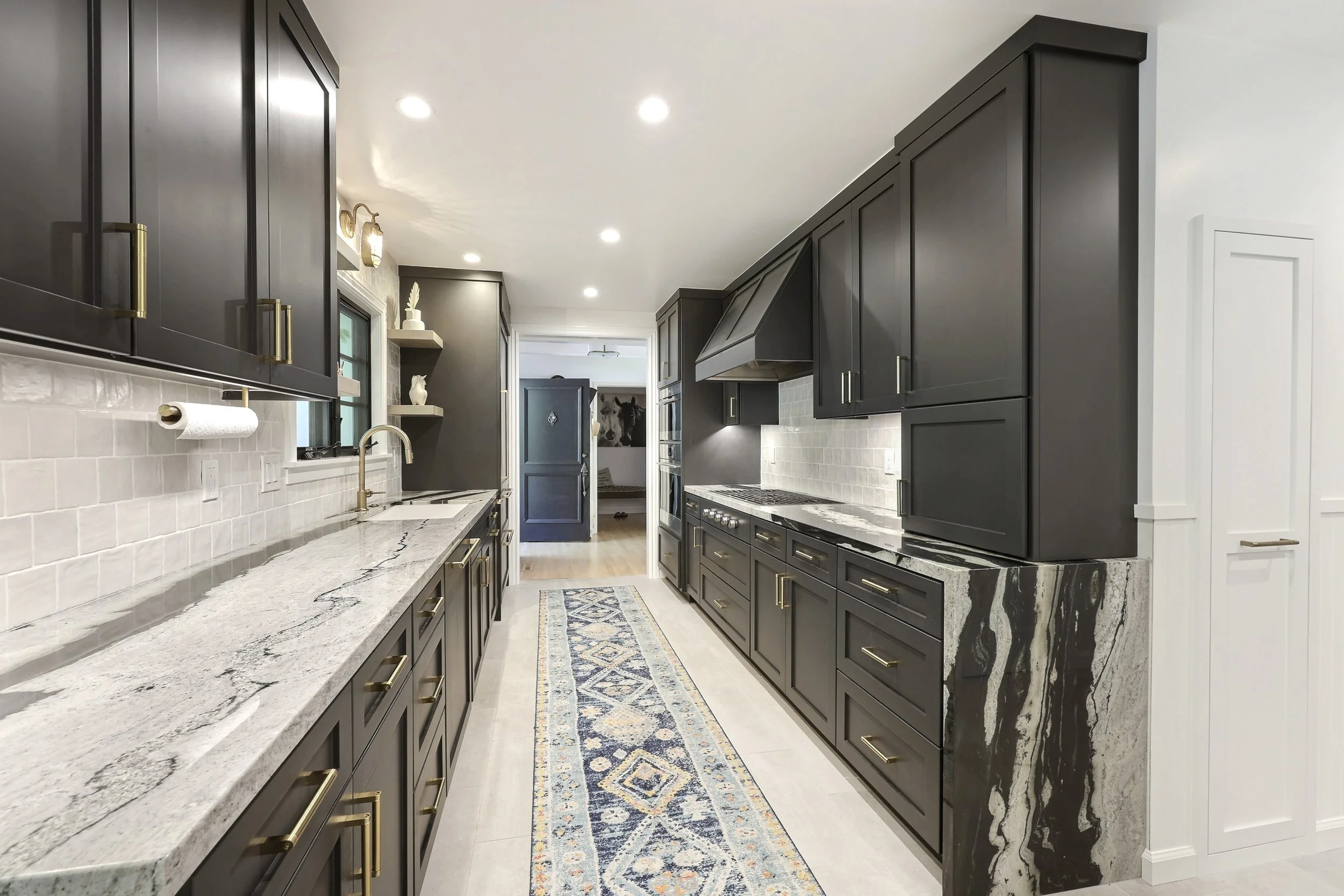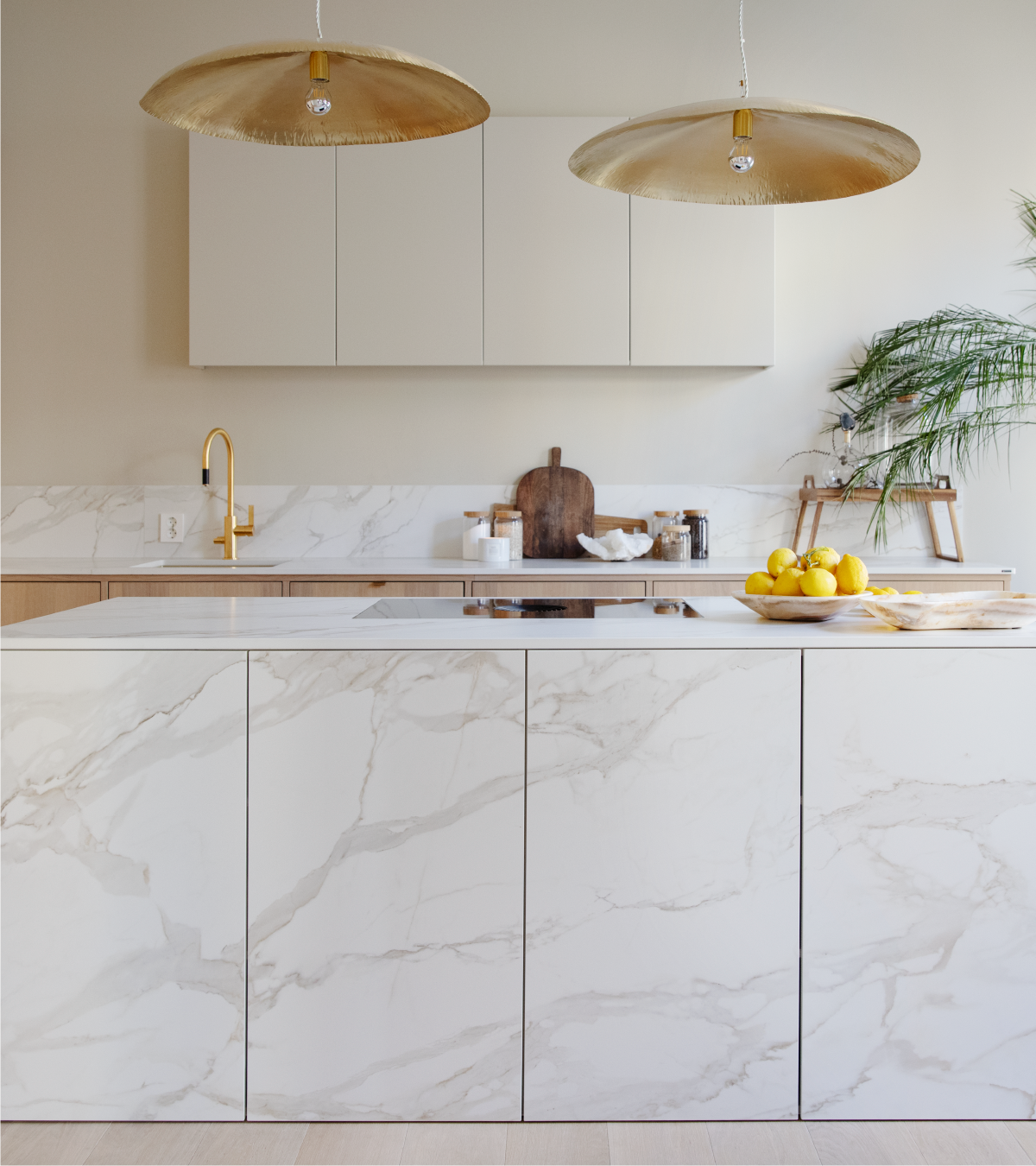The Best Materials for Your Kitchen Countertops
Looking for durable and beautiful kitchen countertop options? These four materials are the most popular, and for good reason!
When selecting kitchen countertops, we gravitate toward something we love aesthetically but the top requests I hear are actually for durability and low maintenance (or no maintenance). While I will always remind you that nothing is bulletproof, there are four materials that fit both the needs and the budget, so it’s no wonder we use them all the time!
Option #1: Quartz
Pental Quartz Countertops give the look of marble in this kitchen without the porosity or maintenance.
Quartz is by far the number one countertop material chosen by the homeowners I’ve worked with over the years - my husband and I also have quartz countertops in our kitchen - and for good reason! There are tons of beautiful options, with new styles and patterns released every year that mimic the look of natural stone (mostly different marbles), but unlike marble, quartz is a manmade product that is made up of mostly (between 90%-95%) naturally harvested quartz material, bound with resin, then combined with additional materials like pigment to create the array of beautiful (and durable) designs we’re seeing today. The resin is the key component that gives this product it’s durability - the resin is non-porous and anti-microbial - meaning it’s stain resistant and won’t hold on to bacteria. Quartz is also virtually maintenance free, since it’s not natural stone, it doesn’t need to be sealed! If you’re looking for some beautiful quartz products to consider, I highly recommend Silestone. Not only do they offer beautiful designs, but they have the largest variety of options in both the polished and matte finishes as well as slabs with recycled content!
Option #2: Quartzite
These quartzite countertops have beautiful veining and reflect hues of blue and green when the light hits it.
Quartzite is a natural stone that is denser than granite which makes it naturally more durable. Part of the beauty of quartzite may also be considered one of it’s weaknesses - the fractures (what can look like veins) add to the beauty and visual depth of the material, but be advised that it can mean the edges of the countertop may be more vulnerable to chipping, if there’s a larger fracture on the edges. Fabricators are generally aware of this and accommodate for it when making the laminated edge; if there are chips within the fractures of the stone, they can often be filled with a matching resin and are not noticeable. Because Quartzite is a natural stone and it’s recommended that it be sealed to preserve it’s beauty.
Option #3: Granite
Granite is still a top choice for kitchen countertops!
There’s a reason granite is still a popular choice for kitchen countertops - it’s stood the test of time as one of the more durable options and you can find unique slabs to complement any style! Granite is dense which makes it strong, but just like quartzite, since it’s a natural stone, sealing it every year will help preserve it’s beauty. As you can see in the photo above, granite isn’t just the speckled peach slabs you saw in the 1990’s - it too can be found in a range of colors and patterns and you can work with your contractor and/or fabricator to select the parts of the slab you want for certain features, like the waterfall edge you see in the photo.
Option #4: Ultra-High Compact Surfaces
Dekton by Cosentino, Design: Guri Mulvik, Milla Studios AS, Photo: Yvonne Wilhelmsen
Newer to the market, are surfaces identified as Ultra-High Compact surfaces like Dekton, which basically mimics nature’s compressive strength over thousands of years and condenses that process into a matter of hours using manufacturing technology to sinter up to 20 natural minerals together, forming a uniform, ultra-durable slab product without any mico-defects that cause weak points. Because these slabs are the most durable product on the market, they can be made larger and thinner than quartz slabs (perfect for extra large islands!), and they’re suitable for more than just interior kitchens - they’re perfect for outdoor kitchens as well because they’re abrasion resistant, scratch and impact resistant, and UV resistant. Dekton comes in a range of finishes that mimic concrete, aged metals, woods, and natural stone - no maintenance required!
Of course other beautiful and popular countertop surfaces can often include soapstone (which is a natural stone and requires regular care and maintenance), butcher block, concrete, terrazzo, and other wood options - I’ve even turned a Pottery Barn table top into an island top! The biggest considerations for your material selection will be focused around how you cook/prepare your food, and how you and your family intend to use the space. As long as you’re aware of the materials available and the pros and cons of them, you can make the best choice for your kitchen!
If you have questions, comment below or contact me to let me know how I can help you make your kitchen dreams come true!




